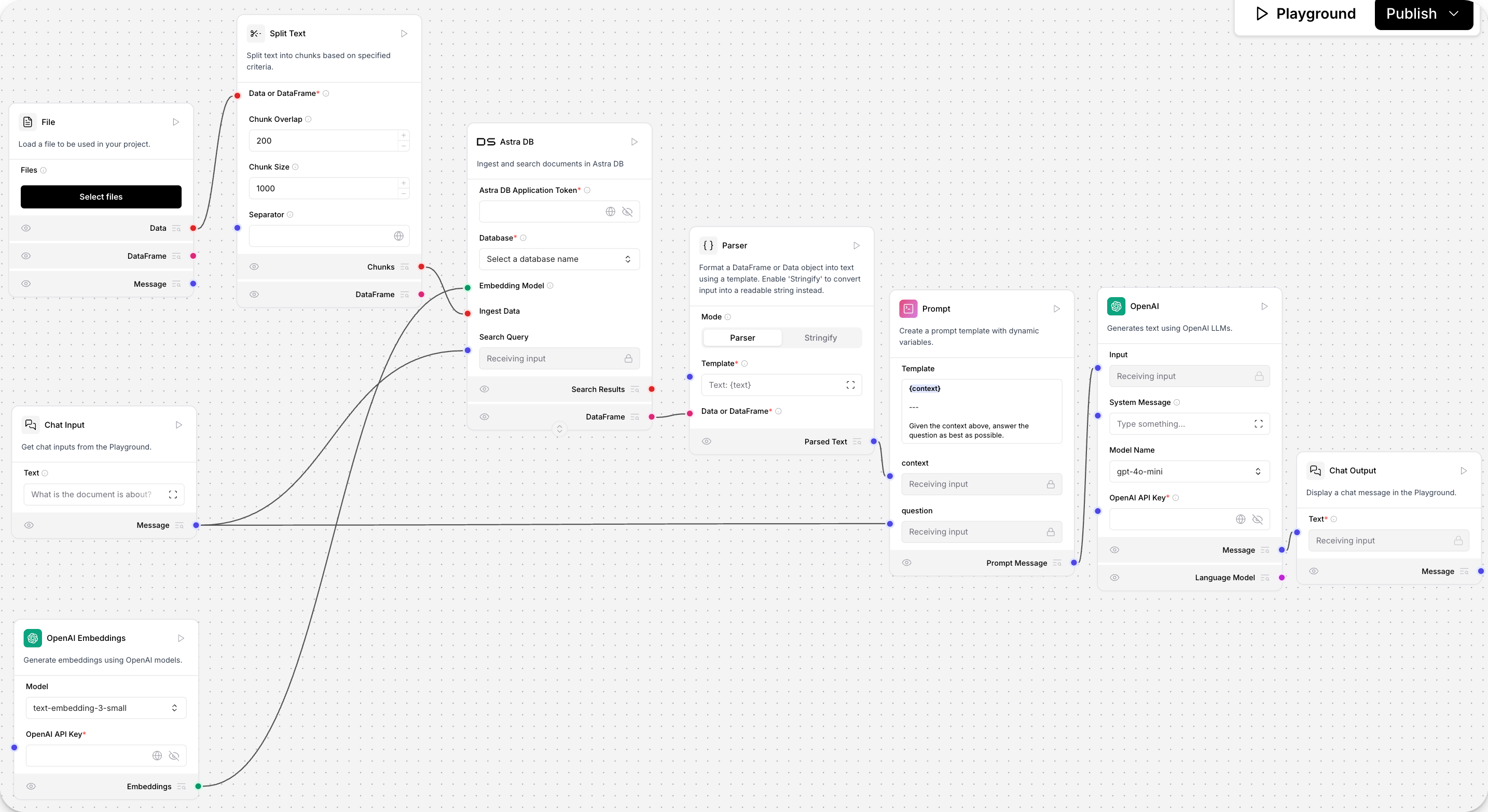Prompts
|
This Langflow feature is currently in public preview. Development is ongoing, and the features and functionality are subject to change. Langflow, and the use of such, is subject to the DataStax Preview Terms. |
A prompt is a structured input to a language model that instructs the model how to handle user inputs and variables.
Prompt components create prompt templates with custom fields and dynamic variables for providing your model with structured, repeatable prompts.
Prompts are a combination of natural language and variables created with curly braces.
Use a prompt component in a flow
An example of modifying a prompt can be found in the Quickstart, where a basic chatbot flow is extended to include a full vector RAG pipeline.

The default prompt in the Prompt component is Answer the user as if you were a GenAI expert, enthusiastic about helping them get started building something fresh.
This prompt creates a "personality" for your LLM’s chat interactions, but it doesn’t include variables that you may find useful when templating prompts.
To modify the prompt template, in the Prompt component, click the Template field. For example, the {context} variable gives the LLM model access to embedded vector data to return better answers.
Given the context
{context}
Answer the question
{user_question}When variables are added to a prompt template, new fields are automatically created in the component. These fields can be connected to receive text input from other components to automate prompting, or to output instructions to other components. For an example, try the Sequential Tasks Agent template.
Prompt
This component creates a prompt template with dynamic variables. This is useful for structuring prompts and passing dynamic data to a language model.
Parameters
| Name | Display Name | Info |
|---|---|---|
template |
Template |
The prompt template with dynamic variables |
| Name | Display Name | Info |
|---|---|---|
prompt |
Prompt Message |
The built prompt message |
Prompt template field
The template field allows you to create other fields dynamically by using curly brackets. For example, if you have a template like Hello {name}, how are you?, a new field called name is created. Prompt variables can be created with any name inside curly brackets, e.g. {variable_name}.
Langchain Hub prompt
|
This component is deprecated. Instead, use the Prompt component. |
This component allows you to use prompts from LangChain Hub in your flow.
Parameters
| Name | Type | Description |
|---|---|---|
langchain_api_key |
SecretString |
Your LangChain API key for authentication |
langchain_hub_prompt |
String |
The LangChain Hub prompt to use (e.g., "efriis/my-first-prompt") |
| Name | Type | Description |
|---|---|---|
prompt |
Message |
The built prompt from LangChain Hub |
